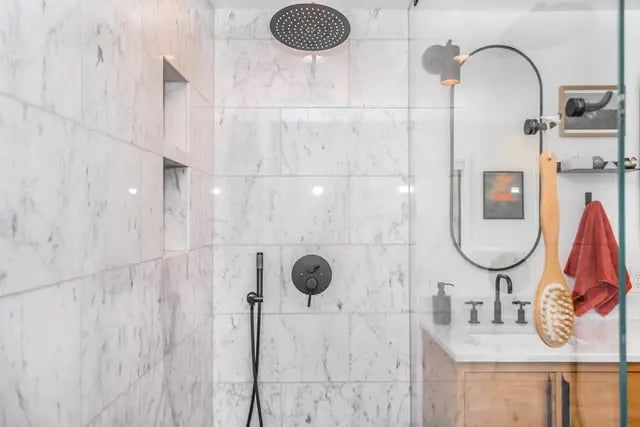How Much Electricity Does My Shower Use?
Posted by Mark Peers

In the context of expensive energy prices, many consumers are turning away from baths and favouring showers instead. This is especially true in properties where baths use gas-powered hot water, which are more expensive to run than regular electric showers.
 Of all the shower systems available, electric showers are the most common in UK buildings. This type of installation is usually favoured because it’s considered to be more water efficient than other alternatives.
Of all the shower systems available, electric showers are the most common in UK buildings. This type of installation is usually favoured because it’s considered to be more water efficient than other alternatives.
However, since these showers require electricity to run, the question is not just how much water they save, but how they affect your electric bill. Let’s look at some relevant facts.
- First of all, electric showers provide hot water on demand, so in theory they can reduce electricity consumption when compared to using boilers with an immersion element. Despite this, and according to 2020 data, the cost of heating water could account for more than half of an annual electricity bill.
- A research study by a leading home boiler manufacturer found that electric showers are the most energy-intensive appliance in British homes, as they can consume nearly 1,500 kWh per year.
- The actual energy consumption of a shower depends on the property size. In an average-sized UK home, a family of four taking daily showers of 6 minutes could use up to 1,460 kWh per year - that’s out of the annual total average of 2,800 kWh.
- Other estimates suggest that standard shower consumption is 1 kilowatt every 6 minutes. But to put that in context, a 1-minute hot shower consumes as much electricity as running lighting on a 3-person household for a whole day.
With all this in mind, it’s obvious that investing in an energy-efficient shower model is crucial if you want to minimise energy expenditure. Let’s recap our findings on this topic:
- Electric showers use less water and less energy than power showers and boiler-fed showers but only if showers are short.
- Gas powered mixer showers can be up to 40% cheaper, but gas prices are rapidly increasing.
- Power showers usually have the highest running costs, and could easily double the costs of taking an electric shower.
Fixtures And Fittings
Your choice of shower fixtures and fittings also matters, especially when it comes to shower heads, water flow levels, and thermostats with energy-saving settings.
And lastly, all the figures and consumption estimates are much higher in buildings with multiple dwellings, such as student accommodation, hotels, etc, so it makes sense for facilities managers to invest in high efficiency units for their wash facilities.
Next Steps – Cheaper And More Enjoyable Showers From Advanced Showers
As a final reminder, when estimating the cost of showering habits, you must consider both electricity and water consumption. Shower pods are completely leak-proof shower enclosures that can be installed quickly and reduce water leaks you may be experiencing in your premises. To find out more, we invite you to claim a copy of our free Shower Pods Guide, and feel free to call us on 01483 532020 if you have any questions.
Image source: Unsplash




